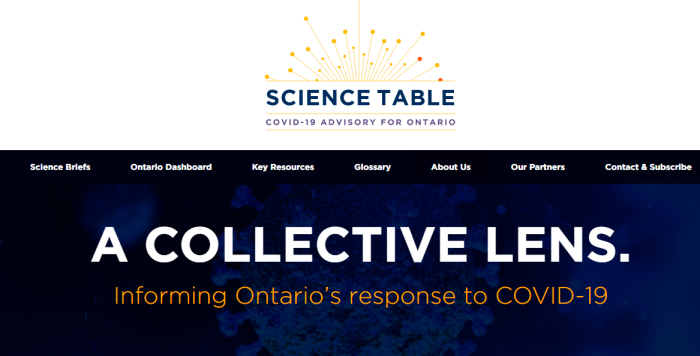
For some background on the University of Toronto, Ontario Science Table, check this earlier article. While it’s true that there the vast majority of these members (and many Medical Health Officers in Ontario) have ties to U of T, there’s more to it than that. Let’s take a look:
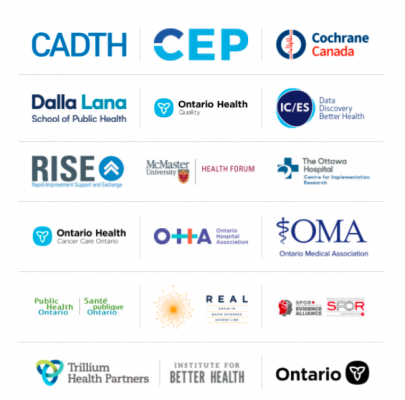
It’s important that the Ontario Science Table claims to be independent, yet it’s partners with the Dalla Lana School of Public Health, and the majority of the Table has other ties there. It’s as if OST was simply an extension of U of T. But it gets more interesting from there. There are conflicts of interest everywhere.
- CADTH, Canadian Agency for Drugs and Technologies in Health
- Cochrane Canada
- Dalla Lana School of Public Health, University Of Toronto
- Public Health Ontario
- SPOR Evidence Alliance
- Trillium Health Partners
- Rob Steiner: PHAC Creator
- Vinita Dubey: Toronto Associate Medical Officer
- Other Science Table conflicts of interest
1. CDN Agency Drugs & Technologies in Health
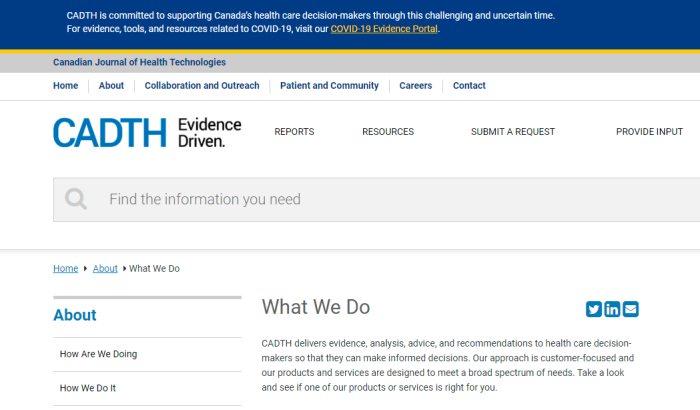
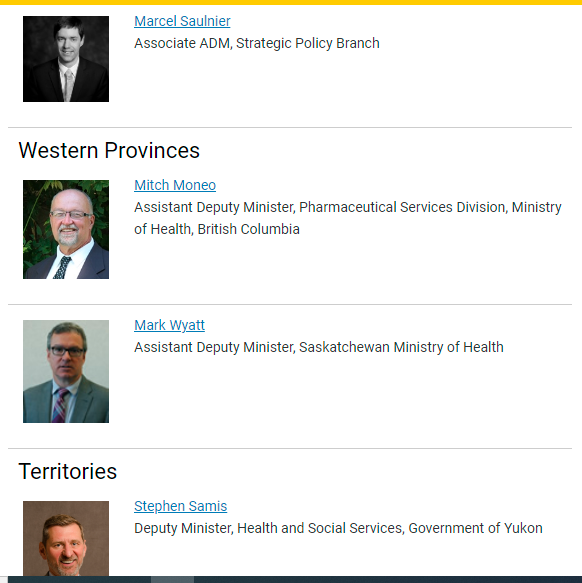
Board of Directors
The 13-member CADTH Board of Directors is composed of an independent chair; a regional distribution of jurisdictional federal, provincial, and territorial representatives; and a number of non-jurisdictional representatives from health systems, academia, and the general public. Directors are elected by the Members of the Corporation, who are the Deputy Ministers of Health for participating federal, provincial, and territorial governments.
.
The Board has overall responsibility for administering the affairs of the Corporation and providing the strategic direction to guide CADTH’s success as the Canadian “go-to” provider of evidence and advice on the use of drugs and other health technologies.
- David Agnew: held the position of President and CEO of UNICEF Canada, and was the first head of the organization recruited from outside the international development sector. As Principal for the consulting firm Digital 4Sight, he led the firm’s global research initiative on Governance in the Digital Economy. In the co-operative sector, he was the Executive Vice-President and Corporate Secretary for the Credit Union Central of Ontario. Mr. Agnew also held the position of Ombudsman for Banking Services and Investments, the national dispute resolution service for consumers and small businesses. On the boards of directors for Polytechnics Canada, Colleges and Institutes Canada, and the Education Quality and Accountability Office. He is the past Chair of Sunnybrook Health Sciences Centre and of Colleges Ontario. He also serves on numerous other boards and committees, including the Toronto Region Immigrant Employment Council, the Council on Foreign Relations’ Higher Education Working Group on Global Issues, the Sichuan University International Advisory Board, the CivicAction Steering Committee and the Canadian Ditchley Foundation Advisory Board. He is a former member of the federal government’s Science, Technology, and Innovation Council, a former director of ventureLAB and the Empire Club of Canada, and has served on the campaign cabinets of the United Way in Toronto and Peel.
- Marcel Saulnier, Associate Assistant Deputy Minister, Strategic Policy Branch, Health Canada
- Western Provinces, Mitch Moneo, Assistant Deputy Minister, Pharmaceutical Services Division, Ministry of Health, British Columbia
- Mark WyattMark Wyatt, Assistant Deputy Minister, Saskatchewan Ministry of Health
- Territories, Stephen Samis, Deputy Minister, Health and Social Services, Government of Yukon
- Ontario, Patrick Dicerni, Assistant Deputy Minister, Drugs and Devices Division and Executive Officer, Ontario Public Drug Programs
- Atlantic Provinces, Jeannine Lagassé, Associate Deputy Minister of Health and Wellness, Province of Nova Scotia.
- Karen Stone, Deputy Minister of Health and Community Services (NL)
- Health Systems, Dr. Brendan Carr, President and CEO of the Nova Scotia Health Authority
- Dr. Charmaine RoyeDr. Charmaine Roye, Physician, Ottawa
- Public, Cathy McIntyre, Principal of Strategic Initiatives
- Ellen Pekilis, Legal, Risk and Governance Advisor
- Academic, Dr. Stuart Peacock, Leslie Diamond Chair in Cancer Survivorship and Professor, Faculty of Health Sciences, Simon Fraser University; Co-Director, the Canadian Centre for Applied Research in Cancer Control (ARCC); and Distinguished Scientist in Cancer Control Research, British Columbia Cancer Agency
- Observer (Quebec), Dr. Luc Boileau, President and CEO, Institut national d’excellence en santé et en services sociaux (INESSS)
Actual high ranking bureaucrauts are Directors of this organization. Forget independence from Government, this is the Government being represented here.
CADTH calls itself and independent and non-partisan group that provides information and recommendations for decision makers in health care.
2. Cochrane Canada
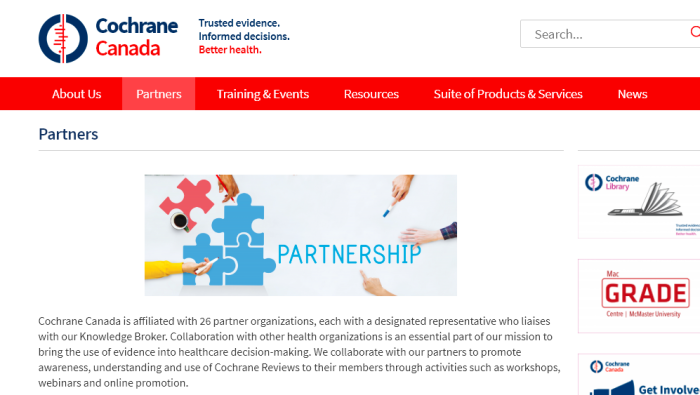
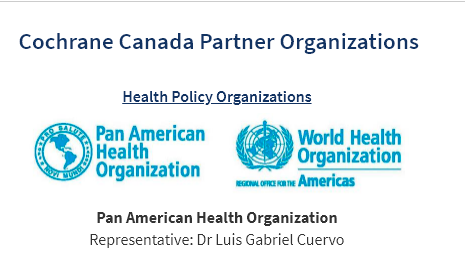
Cochrane Canada is affiliated with 26 partner organizations, each with a designated representative who liaises with our Knowledge Broker. Collaboration with other health organizations is an essential part of our mission to bring the use of evidence into healthcare decision-making. We collaborate with our partners to promote awareness, understanding and use of Cochrane Reviews to their members through activities such as workshops, webinars and online promotion.
.
The guidelines for becoming a partner organization can be reviewed here. If you are interested in partnering with Cochrane Canada, please contact us. The partner terms of reference set out the eligibility and responsibility of the partner relationship.
One of the Ontario Science Table’s partners is Cochrane Canada. While claiming to be an “independent global network” of healthcare practitioners and researchers, it’s partnered with the World Health Organization.
3. Dalla Lana School of Public Health, U Of T
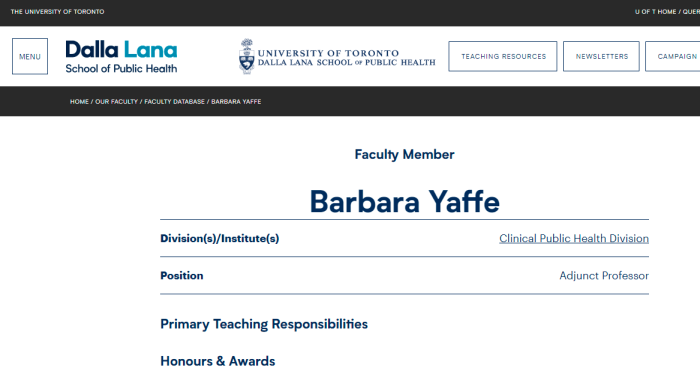
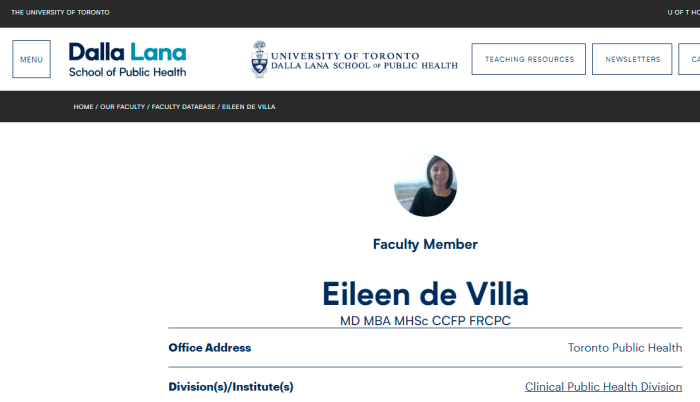
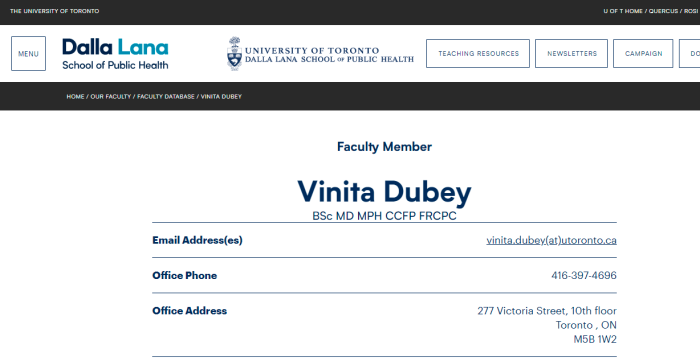
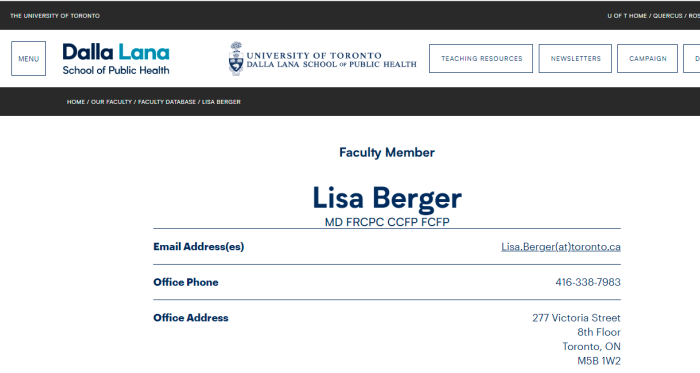
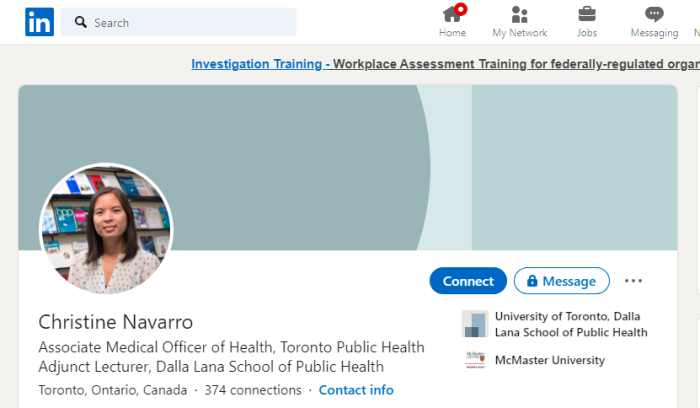
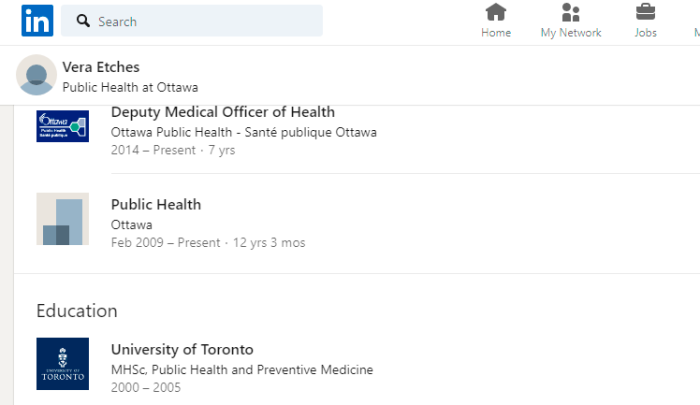
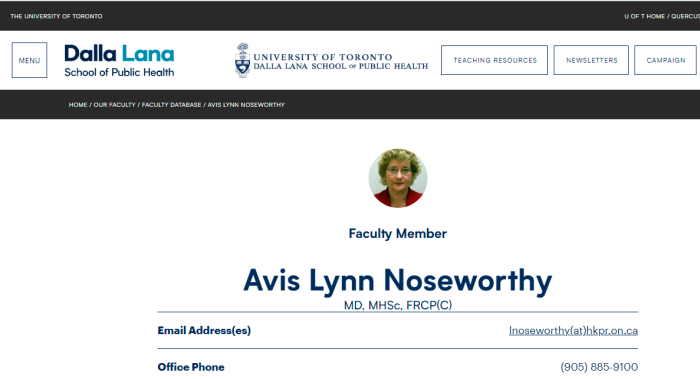
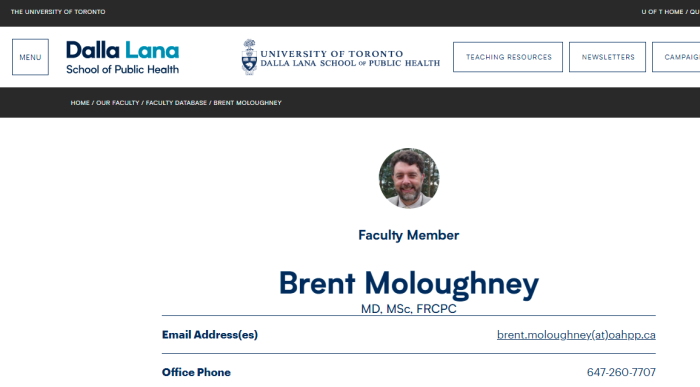
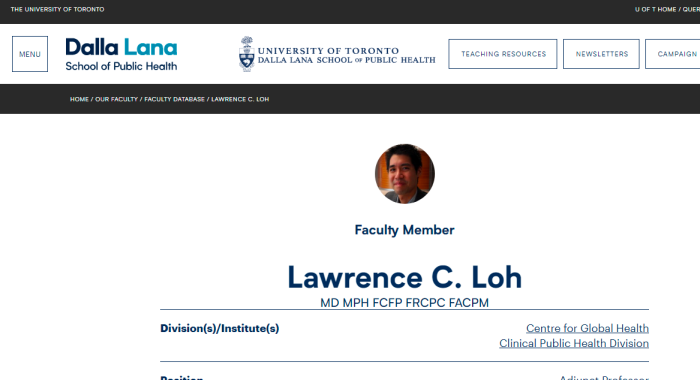
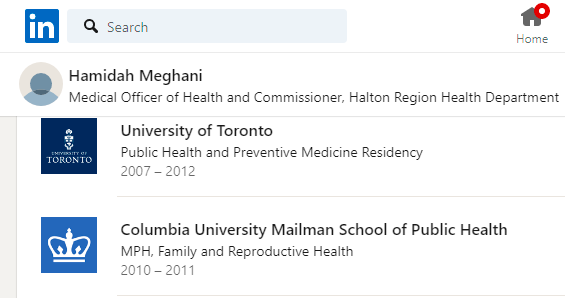
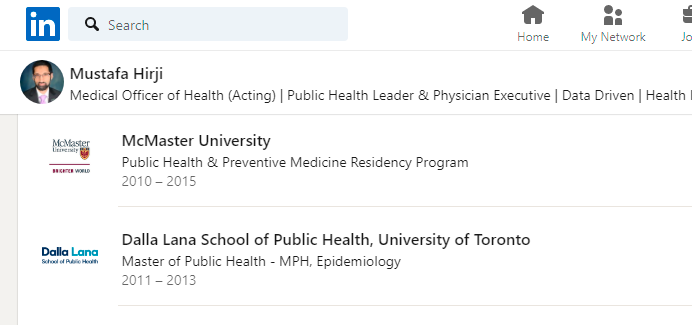
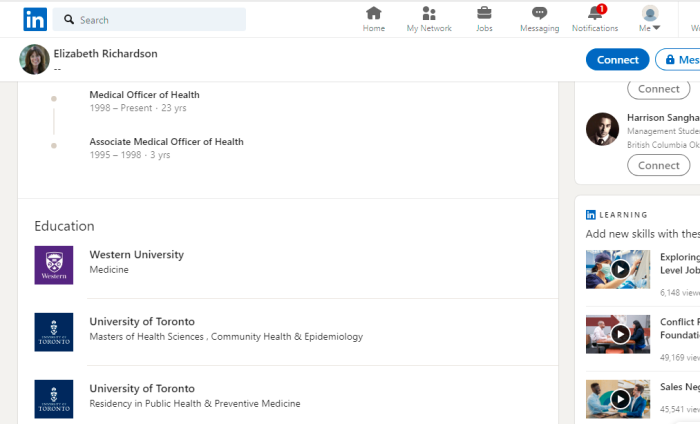
- Barbara Yaffe – Ontario Deputy Medical Officer
- Eileen De Villa – Toronto Chief Medical Officer
- Vinita Dubey – Toronto Associate Medical Officer of Health
- Lisa Berger – Toronto Associate Medical Officer of Health
- Christine Navarro – Toronto Associate Medical Officer of Health
- Avis Lynn Noseworthy – Medical Officer of Health for the Haliburton, Kawartha, Pine Ridge
- Vera Etches – Ottawa Deputy Medical Officer of Health
- Brent Moloughney – Ottawa Associate Medical Officer
- Lawrence C. Loh – Peel Medical Officer of Health
- Hamidah Meghani – Halton Region Medical Health Officer
- Nicola Mercer – Wellington-Dufferin-Guelph Medical Officer (UofT Medical School)
- Mustafa Hirji – Niagara Acting Medical Officer of Health (U of T graduate)
- Elizabeth Richardson – Hamilton Medical Officer of Health (U of T graduate)
The Dalla Lana School of Public Health is part of the University of Toronto. DLSPH is also partnered with the Ontario Science Table. Seems pretty strange that so many “Medical Officers” in Ontario either have attended U of T, and/or are Professors there.
4. Public Health Ontario
The Ontario COVID-19 Science Advisory Table is a group of scientific experts and health system leaders who evaluate and report on emerging evidence relevant to the COVID-19 pandemic, to inform Ontario’s response.
.
The Science Table’s mandate is to provide weekly summaries of relevant scientific evidence for the COVID-19 Health Coordination Table of the Province of Ontario, integrating information from existing scientific tables, Ontario’s universities and agencies, and the best global evidence. The Science Table summarizes its findings for the Health Coordination Table and for the public in Science Briefs.
.
The Science Table is an independent group, hosted by the Dalla Lana School of Public Health. There is no compensation for serving on the Science Table. However, the Scientific Director and the Secretariat are funded by the Dalla Lana School of Public Health and Public Health Ontario.
The Ontario Science Table claims to be an independent group, get admits it gets funding from PLSPH, and Public Health Ontario. Consider just how many people (and Medical Officers of Health) have ties to the University of Toronto. Also consider, that PHO’s agenda is in keeping this “pandemic” alive. It’s difficult to see the OST as anything other than the propaganda arm of those groups.
5. SPOR Evidence Alliance
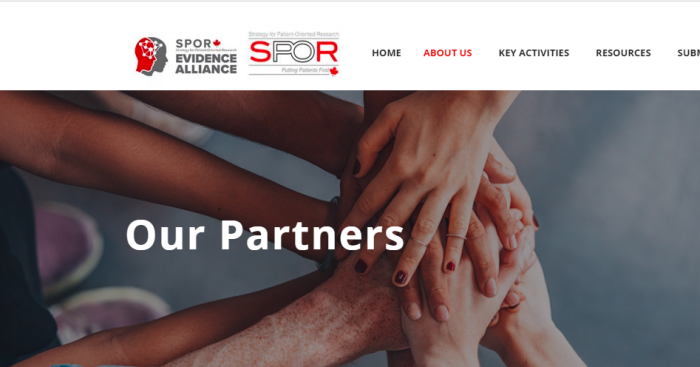
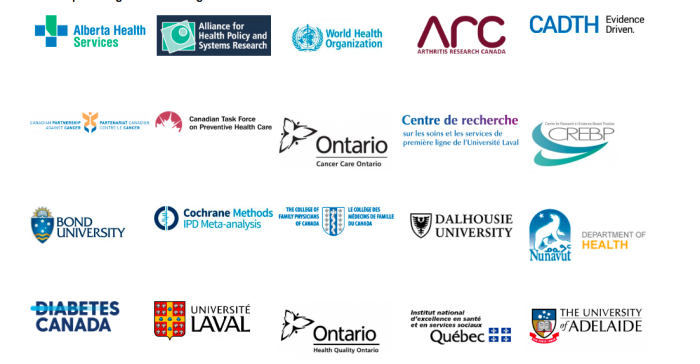
The SPOR Evidence Alliance is made possible by a five-year grant from the Canadian Institutes of Health Research (CIHR) under Canada’s Strategy for Patient-Oriented Research (SPOR) Initiative, and the generosity of sponsors from 41 public agencies and organizations across Canada who have made cash or in-kind contributions.
SPOR Evidence Alliance also claims to be independent, but is partnered with the World Health Organization. This seems to be a pattern. Several universities are also listed as partners.
6. Trillium Health Partners
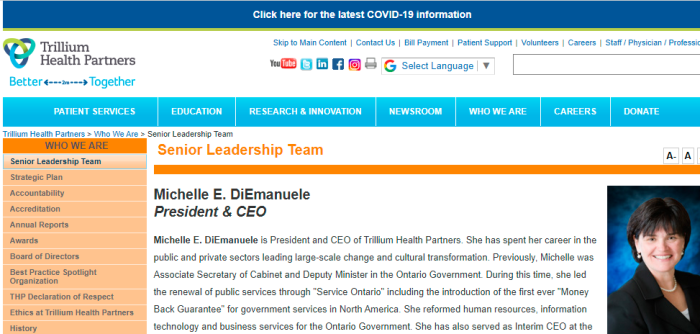
- Michelle E. DiEmanuele is President and CEO of Trillium Health Partners. She has spent her career in the public and private sectors leading large-scale change and cultural transformation. Previously, Michelle was Associate Secretary of Cabinet and Deputy Minister in the Ontario Government. During this time, she led the renewal of public services through “Service Ontario” including the introduction of the first ever “Money Back Guarantee” for government services in North America. She reformed human resources, information technology and business services for the Ontario Government. She has also served as Interim CEO at the Ontario Lottery and Gaming Corporation, Assistant Deputy Minister of Health, Vice President (Branch and Small Business Banking, Retail Markets/Human Resources), CIBC and Vice President (Human Resources and Organizational Development), Brookfield Properties Ltd.
- Karli Farrow is a leader who has been a part of transformation designed to improve public services in Ontario for over fifteen years. She is the Senior Vice-President, Strategy, People and Corporate Affairs and is accountable for leading critical enabling functions including strategy and project management, human resources, organizational development, public affairs and corporate governance. Karli joined the previous Credit Valley Hospital and Trillium Health Centre in 2009 and in 2011 provided project leadership to support the merger of the two organizations. Prior to joining Trillium Health Partners, Karli worked for a health care consulting company where she led critical projects focused on reducing wait times and improving chronic disease management. She has also served in senior advisory roles for the government of Ontario, including Director of Policy for the Premier of Ontario and Chief of Staff to the Minister of Health and Long-Term Care. In these roles she worked to develop and implement strategies to improve access to care and the long-term sustainability of the health care system in Ontario.
In addition to many of the leadership and Board attending the University of Toronto, a few have also been high ranking officials in the Provincial Government. Could be why there is nothing to objectionable about what Ford is doing. Interestingly, several of them have ties to major banks.
7. Honourable Mention: Rob Steiner
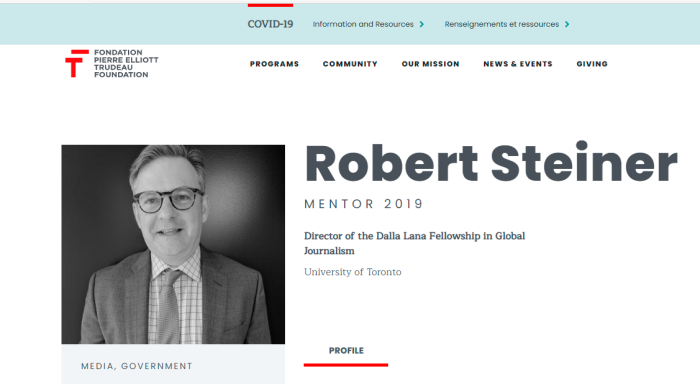
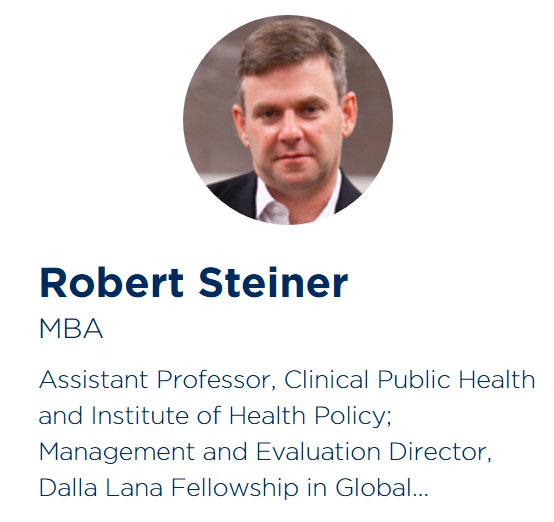
Mr. Steiner also served as health and public health policy advisor and principal speechwriter for Paul Martin, during his Liberal Party leadership campaign and transition to being Prime Minister of Canada in 2003. He subsequently advised the Prime Minister’s Office and Cabinet on the creation of the Public Health Agency of Canada in 2004. In 2000, Mr. Steiner had managed the Liberal Party of Canada’s new media campaign in the period leading to and during the federal general election, working for Prime Minister Jean Chretien.
Steiner helped create the Public Health Agency of Canada, as per the new International Health Regulations, and was there when the Quarantine Act was passed. He’s also a longtime Liberal Party operative. Steiner is also a member of the Trudeau Foundation, but why should that matter?
8. Honourable Mention: Vinita Dubey
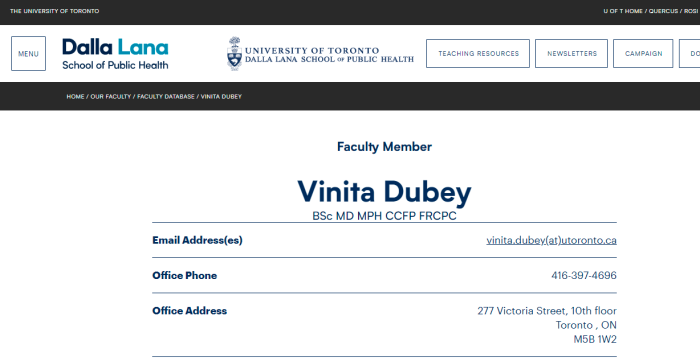
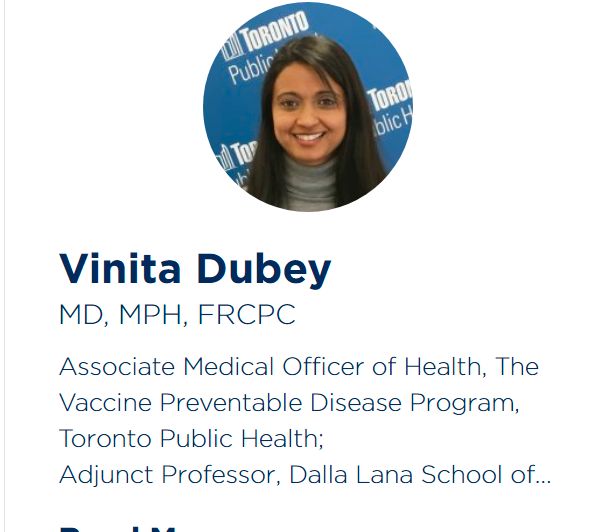
Dubey is a special circumstance. She is an Associate Medical Officer of Health for Toronto, working under Eileen De Villa. Both Dubey and De Villa are Professors at the University of Toronto. However, Dubey is also part of the ironically named Ontario Science Table, providing cover for her boss to impose the measures that she does.
9. Other Serious Conflicts Of Interest
- Trevor Arnason: has an MD from the University of Toronto, and did a combined residency in Public Health and Preventive Medicine and Family Medicine at the University of Ottawa. In 2016, he moved to the east coast to be the Regional Medical Officer of Health for Halifax where he worked on several health promotion initiatives and co-led responses to multiple vaccine preventable disease outbreaks including one of the largest measles outbreaks in Canada in recent years. In January 2019, he returned to his hometown to work as an Associate Medical Officer of Health with Ottawa Public Health where is consultant to the vaccination and sexually transmitted and bloodborne infections portfolio. He also works part-time as a family doctor in an urgent care clinic.
- Adalsteinn Brown: Prior to becoming Dean, he was the Director of the Institute of Health Policy, Management and Evaluation and the Dalla Lana Chair of Public Health Policy also at the University. Other past roles include head of strategy for the Ontario Ministry of Health and Long-term Care and the head of policy and science for the Ontario Ministry of Research and Innovation.
- Anne Hayes: Director, Research, Analysis and Evaluation Branch, Strategic Policy, Planning and French Language Services Division, Ministries of Health and Long-Term Care
- Melanie Kohn: worked in the Ontario public healthcare sector for almost 20 years. In July 2020, she was appointed Assistant Deputy Minister, Mental Health and Addictions, overseeing the funding and operations of the sector, the realization of the Roadmap to Wellness, and to support standing up the Mental Health and Addictions Centre of Excellence at Ontario Health. In 2016, Melanie joined the Ministry of Health as the inaugural Director of the Hospitals Branch. She was responsible for overseeing the operations, finances, and administration of the Public and Private Hospital Acts providing legislative and regulatory oversight for the province’s 145 hospitals.
- Dr. Kwame McKenzie: previously a Human Rights Commissioner for Ontario and Chair of the Research and Evaluation Advisory Committee of Ontario’s Basic Income Pilot. In addition to his academic, policy and clinical work, Kwame has been a columnist for the Guardian, Times-online and Toronto Star and a past BBC Radio presenter.
- David McKeown: the Associate Chief Medical Officer of Health for the province of Ontario, with responsibility for supporting the provincial covid-19 response. He is a physician specialist who has worked in the public health field for over 30 years. From 2004-2016 he led Toronto Public Health, Canada’s largest local public health agency, serving a diverse population of 2.7 million people. He has also served as the Medical Officer of Health for East York, the Region of Peel, and the former City of Toronto prior to municipal amalgamation. Dr. McKeown led the local public health response to the H1N1 pandemic, a major outbreak of Legionnaire’s Disease, and the first outbreak of West Nile Virus in Canada.
- Rhiannon Mosher: Senior Policy Advisor for the Ontario government’s Behavioural Insights Unit (BIU). In this role, she works with partners in ministries across Ontario and other public sector organizations to help improve program and service delivery through evidence-based, human-centred solutions. Rhiannon has helped design and test solutions to improve programs and service in health, labour, and transportation. Most recently, she has been supporting work to inform the province’s response to COVID-19.
- Sumit Raybardhan: Board Certified Infectious Diseases Pharmacist that practices at North York General Hospital, where he also co-leads the Antimicrobial Stewardship Program. His post-graduate work included a Masters in Public Health specializing in Epidemiology and International Health from Boston University. He has had experiences in the institutional hospital setting as a clinical pharmacist and at regional and international organizations such as Public Health Ontario, UNICEF, and Medicines for Malaria Venture. He currently focuses on pragmatic practice-based research on optimizing antimicrobial use.
- Brian Schwartz: provides executive leadership for PHO’s public health science and population health programs including environmental and occupational health, health promotion, chronic disease and injury prevention, and research and ethics services. Previous portfolios include health protection, emergency preparedness, communicable diseases and infection prevention and control. Dr. Schwartz served as Scientific Advisor to the Emergency Management Branch of the Ministry of Heath and Long Term Care from 2004 to 2011, and was Public Health Ontario’s inaugural Chief of Emergency Management Support. He acted as Vice-chair of the Ontario SARS Scientific Advisory Committee in 2003 and was Chair of the Scientific Response Team for the 2009 H1N1 pandemic.
- Premy Selvakumar: currently works at Public Health Ontario as an Administrative Assistant in the Health Promotion, Chronic Disease, Injury Prevention Department. She has over 10 years of administrative experience and has supported a variety high level of executives. She holds a Bachelor of commerce degree with a major in Human Resources and a minor in Marketing.
10. Does Anything Seem Wrong With This?
The Ontario Science Table presents itself as a neutral group of “experts”, offering insight into what is actually going on. Now, this doesn’t sound bad in principle.
The problem is that people on this panel are former (and current) Government officials. Groups that OST partners with also have former (and current) Government officials working for them. A few groups even partner with the World Health Organization. There are also Medical Officers of Health working for the OST, and serving as Faculty members for the University of Toronto — a partner organization.
How can it be taken seriously as anything other than an extension of the Government? The ties just run way too deep.

Terrific job of research as usual! I’m trying to digest this. It’s not just the issue of conflict of interest. It’s the inertia of such a mass of ‘experts’ driving COVID response.
Shared downeast with thanks… these people are corrupt, destructive bullies.
Of course – the maze of “government” special advisory groups created to advance their interests with extra emoluments, travel and “decision-making” responsibility.
The term that comes to mind is “Astro-turf” except it has not sprung from any Non-Government legitimacy (ie the typical counter-reference to “grass-roots”).
More layers of bureaucratic inefficiency created for the purpose of shared/diffused non-accountability.
Few of these people are actually from Canada, and many of them are from international organizations. If you pull on the thread a bit more, you will probably find Open Society Foundation grant money as well.
It is almost like people on the SAT have other jobs!